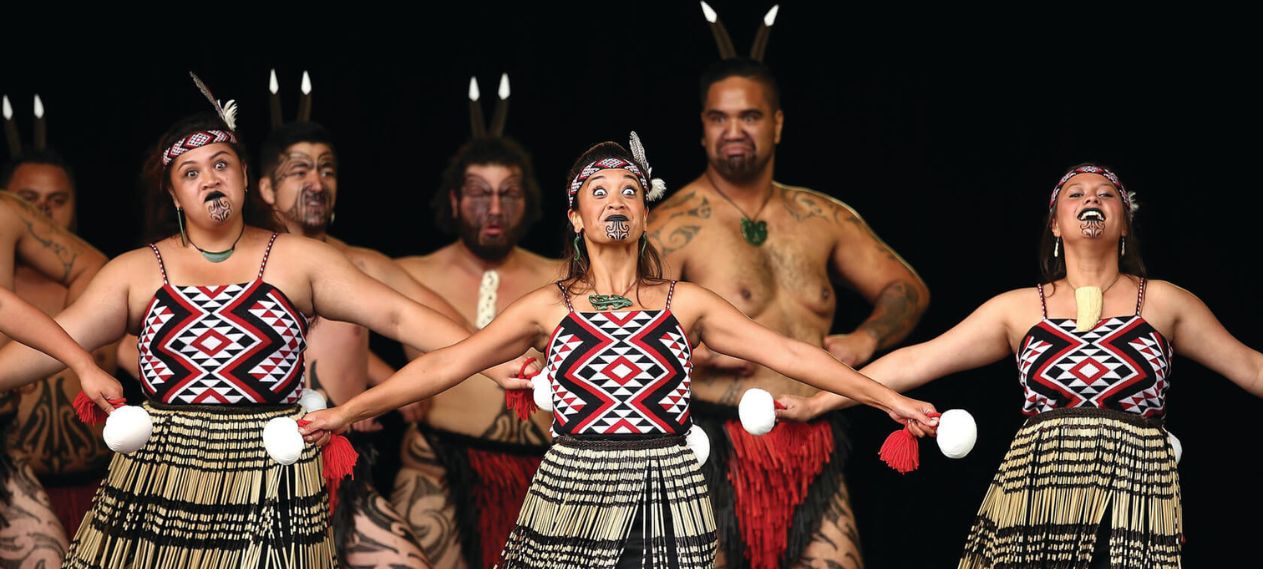Traditionally, the haka served as a customary welcome for visiting tribes, doubling as a powerful ritual to energize warriors before battle. Beyond a display of physical prowess, the haka embodies cultural pride, strength, and unity.
While “haka” translates to dance in Māori, it isn’t a conventional dance. Typically performed in groups, it incorporates chanting, stamping, intricate hand movements, and facial gestures. The content of the haka varies across tribal regions, often narrating significant events in an iwi’s (tribe’s) history.
Today, the haka is a symbol of respect and is performed on noteworthy occasions like sporting events, weddings, funerals, and powhiri (traditional welcomes). Its origins trace back to Māori legend, where Tane-rone, the son of sun god Tama-nui-te-ra and goddess Hine-Raumati, danced for his mother during summer, creating the shimmering air seen on hot days.
Also Read: New Zealand’s Youngest MP Delivers First Speech with Māori Haka
The famous haka, “Ka Mate,” performed by the All Blacks, begins with the words “Ka mate, ka mate, ka ora, ka ora” (I die, I die, I live, I live). It recounts Ngati Toa Chief Te Rauparaha’s evasion from capture by a rival iwi, hiding in a kumara pit. This symbolic gesture of emerging from darkness into light resonates through the trembling hands in the haka.
For the All Blacks, starting each test match with the haka has been a tradition for almost 120 years, providing a psychological edge that contributes to their remarkable victory statistics. The haka elevates heart rates, giving the team an aura of strength. Opponents have devised strategies to counter this, but the primary purpose of the haka remains rooted in cultural pride, strength, and unity.
Even the Black Ferns, New Zealand’s women’s rugby team, partake in the tradition, performing a haka called “Ko Ūhia Mai” (Let It Be Known), specially crafted for them by community leader Whetū Tipiwai. Beyond sports, the haka continues to serve as a powerful expression of cultural identity and unity, resonating deeply with the traditions and values of Aotearoa New Zealand.

